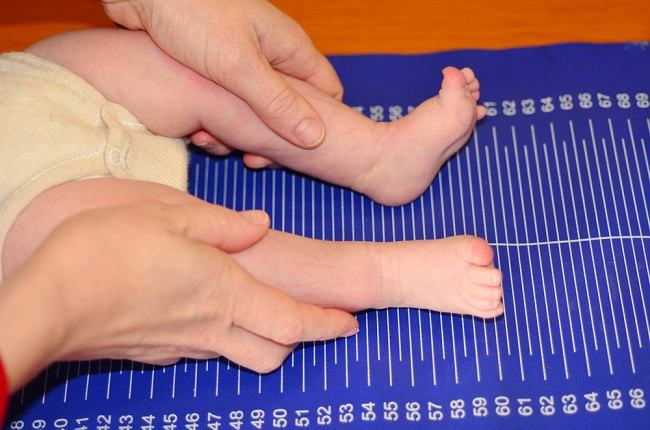Mirtazapine is a drug used to treat depression. This drug can also be used to treat obsessive compulsive disorder or anxiety disorders. This medicine should only be used according to a doctor's prescription.
Mirtazapine is a type of atypical antidepressant. The exact mechanism of this drug is not known. However, mirtazapine is believed to work by balancing the chemical messengers (neurotransmitters) in the brain, so that it can improve the mood of people with depression.

Mirtazapine trademark: Mirtazapine Hemihydrate, Mirzap, Remeron
What is Mirtazapine
| group | Prescription drugs |
| Category | Atypical antidepressants |
| Benefit | Treat depression |
| Consumed by | Mature |
| Mirtazapine for pregnant and lactating women | Category C:Animal studies have shown adverse effects on the fetus, but there are no controlled studies in pregnant women. The drug should only be used if the expected benefit outweighs the risk to the fetus. Mirtazapine is absorbed into breast milk. If you are breastfeeding, do not use this medicine without consulting your doctor first. |
| Drug form | Tablet |
Precautions Before Taking Mirtazapine
Mirtazapine should not be used carelessly and must be in accordance with a doctor's prescription. Before taking mirtazapine you need to pay attention to the following things:
- Do not take mirtazapine if you are allergic to this drug.
- Do not take mirtazapine if you are on treatment with tryptophan or -class antidepressants monoamine oxidase inhibitors (MAOIs), such as isocarboxazid, linezolid, rasagiline, or selegiline.
- Tell your doctor if you have or have had liver disease, kidney disease, glaucoma, heart disease, high cholesterol, hypotension, arrhythmias, epilepsy, electrolyte disturbances, or bipolar disorder.
- Do not drink alcohol, drive a vehicle, or operate equipment that requires alertness, while taking mirtazapine, as this medicine can cause dizziness, drowsiness, and headaches.
- Tell your doctor if you are pregnant, breastfeeding, or planning a pregnancy.
- Tell your doctor if you are taking any other medicines, including supplements, or herbal products.
- Tell your doctor if you have or are currently addicted to alcohol.
- See your doctor right away if you have suicidal thoughts or hurt yourself while you are taking mirtazapine.
- See your doctor right away if you have an allergic drug reaction, a more serious side effect, or an overdose, after taking mirtazapine.
Mirtazapine Dosage and Usage
Mirtazapine is only used for adult patients. The doctor will give the drug dose according to the patient's condition and body response to the drug.
To treat depression, the initial dose is 15 mg per day can be given at bedtime. The dose can be increased gradually. The maintenance dose is 15–45 mg once daily, given as a single dose or divided into 2 doses. The maximum dose is 45 mg per day.
How to Take Mirtazapine Correctly
Use mirtazapine as directed by your doctor and don't forget to read the description on the package. Do not increase or decrease the dose, and stop taking mirtazapine without consulting your doctor first.
Mirtazapine should be taken at bedtime before or after meals. To help swallow the medicine, take mirtazapine tablets with a glass of water.
Do not stop taking mirtazapine without your doctor's advice. While using this drug, do regular check-ups with your doctor so that your health condition can be monitored.
Store mirtazapine in a tightly closed container at room temperature. Make sure not to store it in a place where the temperature is too hot or in a humid place. Keep out of reach of children.
Mirtazapine Interactions with Other Drugs
Taking mirtazapine at the same time as other medicines can cause interactions such as:
- Increased effectiveness of mirtazapine when used with conivaptan, lefamulin, or ketoconazole
- Decreased effectiveness of mirtazapine when used with rifampicin or anticonvulsants, such as carbamazepine or phenytoin
- Decreased effectiveness of the drug iobenguane I 123
- Increased risk of developing serotonin syndrome if used with procarbazine, tryptophan, buspirone, or other antidepressant drugs, such as MAOIs, SSRIs, or SNRIs
- Increased risk of seizures when used with bupropion
Mirtazapine Side Effects and Dangers
There are some common side effects that occur after taking mirtazapine, including:
- dry mouth
- Dizzy
- Headache
- Increased appetite
- Drowsiness
- Weight gain
- Constipation
- Nausea or vomiting
Check with your doctor if the side effects above do not subside. Immediately see a doctor if there is an allergic reaction to the drug which can be characterized by the appearance of an itchy and swollen rash, swollen eyes and lips, or difficulty breathing.
In addition, you should also see a doctor immediately if you experience more serious side effects, such as:
- Dizziness that is getting heavier and even fainting
- Visual disturbances, such as blurred vision
- Confusion, restlessness, or extreme mood swings
- Sleep disturbance
- Painful eyes
- Seizures
- Suicide or self-harm
- Symptoms of an infectious disease appear, which is characterized by a sore throat or fever









